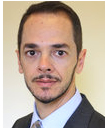Silver jubilee of Brazilian Dental Science
DOI:
https://doi.org/10.4322/bds.2023.e3780Abstract
January 2023 started in a hurry to recover the time delayed by the pandemic and we would like to take this opportunity to wish you all a very happy new year to come. Before setting new goals and preparing new agendas for the current year, let’s take a step back and summarize last year’s pursuits that BDS Journal accomplished, the processes that were set, policies that were set, and goals that were defined to shape our successes in 2023. Last year the new publisher CUBO brought us a huge development in terms of speed and quality for our editorial process. It had its challenges and many wins. Let’s gather all the accomplishments that helped boost our spirit to do better each day including new rules such as: the change to continuous publication among the issues, new academic and assistant editors, new PDF configuration containing ORCID presented for each author, regulatory statement, the contribution of the authors. This noticeable improvement in our journal was only possible with weekly online meetings among the editors and the open access support through the new Article Processing Charge. The scientific community believed in our work and its contribution to our development was incredible. We published on time 95 papers amongst original articles, systematic reviews, critical reviews, case reports, short communications, and editorials [1-6]. The Annual Citescore index on SCOPUS database jumped from 0.3 to 1.5 (a growth of 5X), and we are now in the 77th position in the Dentistry field. To celebrate its Jubilee (25th anniversary) this year, BDS has just published a special issue with peer-reviewed papers from its editors and collaborators. Relishing success and learning from difficulties, we are even more motivated to create greater goals and objectives for ourselves with the mission of taking BDS journal to higher levels.
Downloads
Published
How to Cite
Issue
Section
License
Brazilian Dental Science uses the Creative Commons (CC-BY 4.0) license, thus preserving the integrity of articles in an open access environment. The journal allows the author to retain publishing rights without restrictions.
=================





























